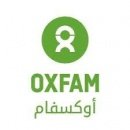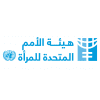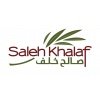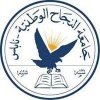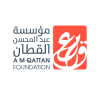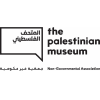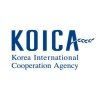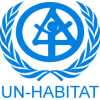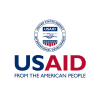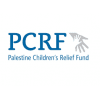Extension Terms of Reference – Local or international Consul...
Oxfam seeks to hire a TVET specialist/consultant to carry out an in-depth TVET Market and Needs Assessment (hereafter the Assessment) in marginalised areas in West Bank and Gaza Strip, with specific focus on Jordan Valley to inform Oxfam’s TVET strategies and interventions starting by 2023. The overall objective of the assignment is to provide and evidence-based analysis to inform Oxfam’s strategic priorities and concrete interventions on youth economic and social empowerment within the TVET sector with a focus on green and decent jobs.
The assignment is expected to be conducted in the period between 1st of August and 15th of October 2022 and to focus on marginalised areas in West bank and Gaza strip with specific focus on the Jordan Valley.
Background
Annexation, movement restrictions, export barriers and violence has created a fragile economy, hindering the development of Palestinian agribusiness and agritourism. Opportunities in the agriculture and agribusiness sector tend to lead to precarious jobs and exploitation – especially for young women. The Technical and Vocational Education and Training (TVET) system in the sector does not necessarily supply young people with the skills they need to gain green and decent jobs and promote economic and social development. TVET is poorly governed, with key civil society stakeholders, representative bodies, innovation and youth organisations not being involved in education planning. Youth, and particularly young women and people from marginalised areas, where agribusiness is the main productive sector, have limited access to TVET. The programmes are often social, and gender stereotyped and perceived as weak in terms of producing positive social outcomes and green jobs for a sustainable future. On the technical side, TVET in the sector does not live up to demands of private businesses. It does not support active citizenship or include enough life skills needed to get a job or skills to engage in entrepreneurship. Therefore, young people tend to favour other educational and training paths. They miss the chance to develop green skills and access decent economic opportunities that could empower them, provide decent livelihoods in the sector, and promote the green transition in Palestine.
Specific objectives
The specific objective of the assignment is to provide Oxfam programmatic recommendations incl. policy recommendations for a new Oxfam program focusing on youth employability and TVET in the agriculture and agribusiness sectors.
Expected results
It is expected that the assessment will provide Oxfam with concrete programmatic recommendations, potential partnerships and facilitate meetings between Oxfam and main stakeholders associated with the agribusiness and agritourism sectors and market players to validate these recommendations. The Assessment shall provide an overview of where the agriculture and agribusiness sectors are in terms of the green transition, what the perception of TVET is, how it is financed and governed.
The Assessment shall identify more broadly what role can Oxfam and partners play vis-a-vis the targeted sectors to promote green transition in Palestine. This should focus on concrete niches and specific areas where Oxfam and partners can have an important added value in a crowded field. It is expected that the Assessment identifies the needs for policy changes regarding youth and their access to quality TVET relevant to the green transition. It is also expected that the Assessment identifies potential areas of advocacy/policy dialogue for Oxfam and partners based on our concrete work with TVET and collaboration with private sector on industry needs relating to the green transition. The Assessment shall also validate the sectors/sub-sectors of focus in each targeted area that is identified by Oxfam, hereunder agribusiness and agritourism. The Assessment will identify skills gaps to engage in labour market, initiate own business and entrepreneurial areas among young women and men from the targeted areas, where the agriculture and agribusiness is the main productive sector.
In addition to this the following specific outputs shall be delivered:
to map and list potential partnerships with e.g., private sector, youth organisations, state entities to develop green skills and access to decent livelihoods in the sector and promote the green transition in Palestine.
to identify existing role differences of men and women in the value chains of agribusiness and agritourism sectors and identify opportunities to advance the role and engagement of young women.
to identify differences between Gaza and the West Bank in the agribusiness and agritourism sectors terms of existing skills and capacity gaps and to reflect that in the strategies and intervention recommendations.
to provide recommendations on additional selection criteria relating to young people targeted by Oxfam.
to map key donors and implementing agencies within TVET and skills building in the agribusiness and agritourism sectors as well as their key activities to understand how an Oxfam program can build on and relate to these to identify potential external exposure and partnerships as an integral core function of the program.
to provide a gender analysis focusing on young women’s access to and needs in TVET, as well as their specific needs to enter the labour market in the agriculture and agribusiness sector.
Methodological Guidelines
The Assessment should be based on literature review including reliable published reports and statistics by reliable international and public organisations, on focus group discussions with young people and key stakeholders in the targeted locations as well as interviews with key youth partners, Oxfam and Oxfam IBIS staff etc.
The validation of sectors of focus and programmatic recommendations should be based on reliable sector analysis and reports as well as interviews with key stakeholders including TVET institutions, policy makers, private sector actors, innovation hubs, youth organisations, sector unions, chambers of commerce, technology suppliers, universities and research centres, and development organisations and a group of young women and men in the professions.
The programmatic recommendations must be aligned with sectoral national policies, strategies and plans. It is also expected that these policies, strategies and plans that take into consideration when facilitating Oxfam meetings and discussion with key ministries and relevant decision makers.
Roles of the consultant/expert
The consultant/expert will:
Conduct the Assessment in the West Bank and Gaza strip, while zooming in on the specific context of Jordan valley looking at specific context and needs of youth in the Jordan Valley.
Identify the specific TVET specialisation/professions of focus of potential for youth employment that bridge market gaps and meets aspirations of youth in the area in each targeted area, and its intersection with agribusiness, green transition, creative and smart skills/functions, agrotechnology upgrading, social entrepreneurship, etcetera.
Facilitate discussion with key stakeholders associated with the analysis and recommendations to generate and validate recommendations.
Develop the overall Assessment report including concrete recommendations for Oxfam’s strategic prioritization and short-medium term interventions for youth economic integration and empowerment in TVET sector with clear differences between recommendations related to gender differences and geographical locations for the targeted areas.
Deliverables
Inception report, to be delivered and approved based on the desk review and delivered no later than 15th of August 2022.
The Assessment report with the following elements:
Concrete strategic and medium-short term programmatic recommendations, potential partnerships and alliances between Oxfam and main stakeholders associated with TVET specialisations and market players.
Specific recommendations for interventions and approaches to promote gender equity, good governance, and increased resilience of young women and men in the targeted areas.
Validation of specialisations of focus. This should include relevant Agri TVET and green economy specialisations of potential for youth employment that bridge market gaps and meets aspirations of youth in the targeted area.
Validation workshop/s for the programmatic recommendations for Oxfam with main stakeholders to ensure synergies and collaboration.
Validation meeting between Oxfam and the relevant ministries and public institutions to ensure collaboration and alignment with relevant sectoral national policies and strategies.
Copyright
Oxfam retains copyright of all content created and may use them for example, in local and international media, Oxfam websites and social media pages.
Technical and financial offer
Potential and interested firms / individuals are required to submit a complete [English Language] proposal describing / articulating the work requirements outlined in this ToR. The proposal should include:
A list of relevant experience in TVET sector.
Clear and applicable work approach and methodology.
First draft general data gathering, analysis and facilitation tools.
Clear description of the work plan (outline proposal) with time frame.
CV/s of the team lead and other consultant/s, if applicable, within the West Bank and the Gaza Strip. Divisions and responsibilities between the team lead and other consultants in each area must be clarified.
Detailed financial budget with a breakdown of cost (whenever possible).
General Terms and Conditions
The assignment is open to all relevant consultancy companies/group of individuals.
Prices must be provided in Euro and including VAT.
All proposals will be evaluated based on internally agreed criteria as follows:
Criterion
Weight
Specific and extensive expertise in relevant field
25%
Proposed team / personnel which includes composition of the team, if applicable, and their educational qualification and experiences. With equal competences, gender-balanced teams will be favourite
15%
Methodology and workplan which includes approach, sampling methodology, data collection methodology, data analysis, etc.
30%
Quality of the presentation of the proposal
10%
Financial proposal
20%
Companies are requested to provide the company registration and valid deduction at source certificate (Local consultants). Individual consultants are requested to include their full details, CVs, and copy of their IDs.
Submitted offers should be valid for 120 days from the final date of submitting the offers.
The tendered should be able to issue an official invoice, or will deduct a percentage from the final payment (according to Palestinian Taxation department & laws).
Duration and time frame
The time frame to complete the assignment and submit the final report is estimated by months (1st of August- 15th of October 2022).
Application process
Interested candidates (individuals or companies) should send the comprehensive proposal describing /articulating the work requirements outlined in this TOR to : [email protected]
Deadline for receiving application is 31/07/2022
The proposal should include 2 (two) Separate documents:
a) Technical Proposal
b) Financial proposal




